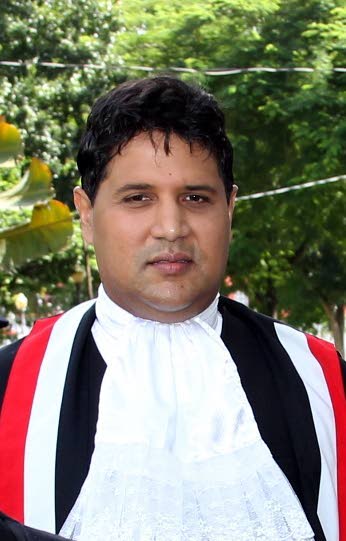Judge: Outcome of Express raid could affect all media

JUSTICE Frank Seepersad on Thursday gave the Media Association (MATT) permission to join as an interested party and make submissions in the matter of the police raid on the Express newspaper's offices.
In granting the order Justice Seepersad said the court was resolute in its view that MATT demonstrated it has a sufficient interest in the proceedings and that the outcome will have a material and fundamental impact on the association and its members.
One Caribbean Media Group Ltd, the Express and editor in chief Omatie Lyer filed a lawsuit against the Attorney General, the Commissioner of Police and Supt Wendell Lucas challenging the constitutionality of the March 11 raid.
They contend that the warrants issued by a justice of the peace to search the premises were unconstitutional, unlawful, arbitrary, unnecessary and disproportionate. They also say it contravened their right to freedom of the press guaranteed in the Constitution.
The raid came after the publication of an investigative piece on ACP Irwin Hackshaw being flagged by local banks. Several devices were seized from Lyder’s office at Independence Square, Port of Spain.
MATT applied on August 27 to be part of the proceedings.
Seepersad observed that this case involves matters of constitutional law and fundamental human rights.
In his ruling he submitted that MATT, "as the representative body of media practitioners and journalists, is likely to be affected by any decision which the Court renders at the substantive hearing.”
It was "understandably concerned, inter alia, with the preservation and protection of press freedom, the development of journalism and the associated rights of its members" and was also "expected to advocate for press freedom and should be objectively and impartially engaged in public debate on matters affecting journalists and journalism.”
He reminded that the first prime minister, in his first independence address, said, inter alia, “democracy, finally, rests on a higher power than Parliament. It rests on an informed and cultivated and alert public opinion.
“The moment press freedom is arbitrarily infringed or curtailed is the moment that we all lose our prized freedom. The dissemination of unbiased information must be encouraged and not thwarted so as to protect myopic or insular interests."
Calling journalists and media houses the watchdogs of the citizenry, he said they are "charged with the unenviable public interest burden to vigilantly monitor private business and governmental action as well as socio economic and cultural realities, so as to ensure that relevant and critical information is disseminated to the public at large.”
Democracy is meaningless if the public is deliberately, or by design, kept in the dark, he said, and a society’s actions and reactions should never be predicated upon misinformation, ignorance, lies or deceit.
“The role of accurate and responsible investigative journalism is therefore vital as unearthed information can empower the citizenry and serves to guard against inequity, discrimination, corruption, public malfeasance and maladministration by holding the influential, wealthy and powerful accountable.”
But he noted that rights are never absolute and the due process of law and the preservation of the rights of all citizens must remain matters of paramount consideration.
“The press cannot be presumed to have a monopoly on the truth and in the pursuit of market share and profitability there have been instances where there has been the publication of pieces which have violated the rights of citizens.
“The Judiciary consequently acts as an arbiter to effect and ensure that there is balance between the protection of individual rights and privacy on the one hand and the publication of matters which are of public interest on the other.”


Comments
"Judge: Outcome of Express raid could affect all media"